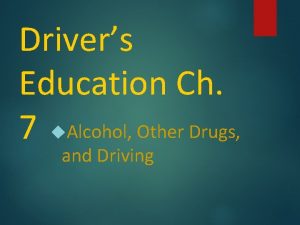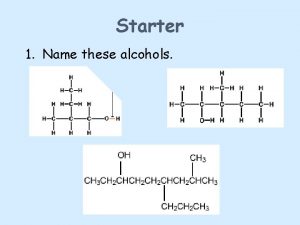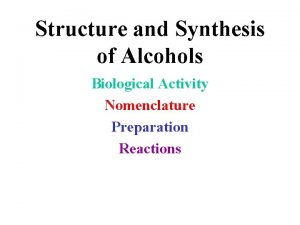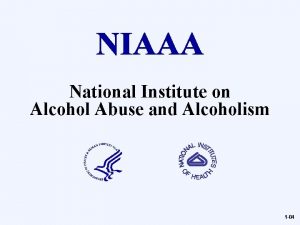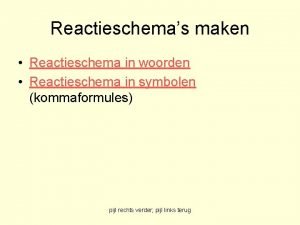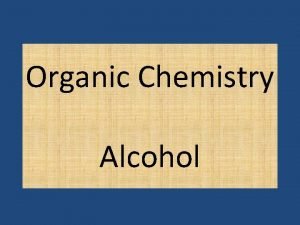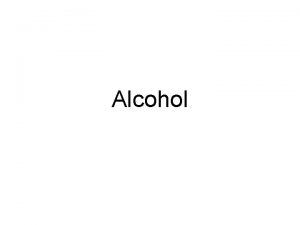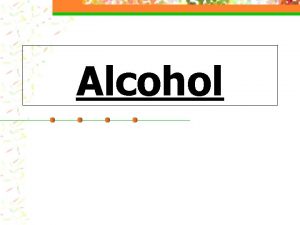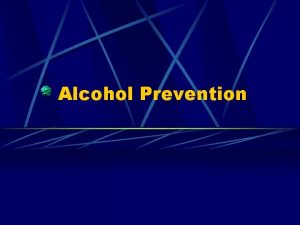What Is Alcohol Alcohol is a Depressant It









- Slides: 9

What Is Alcohol ? Alcohol is a Depressant. It lowers blood pressure, respiration, decreases the response time, impairs muscle coordination and in sufficient amounts causes death.

What Is A Drink? * One 12 oz. Beer * One 5 oz. glass of wine * One 1. 5 oz shot of hard liquor * These all have equal amounts of alcohol in them

How Fast is Alcohol Metabolized by the Body ? Your body metabolizes 1 oz. of alcohol every hour (1 drink per hour). Alcohol metabolization occurs in the liver.

What is Binge Drinking? Binge drinking is defined as more than 5 drinks in 1 sitting or drinking episode.

What is B. A. C. Blood Alcohol Concentration (BAC) can be defined as the ratio of alcohol to total blood volume.

Psychological and Physiological Effects of Various BACs. 02 to. 30 No overt effects, slight mood elevation. . 05 to. 06 Feelings of relaxation, warmth, slight decrease in reaction time and in fine motor coordination. . 08 to. 09 Balance, speech, vision, and hearing become impaired, feelings of euphoria, increased confidence, legal intoxication limit in Illinois. . 11 to. 12 Coordination and balance becoming difficult, distinct impairment of mental function, judgement is impaired.

Psychological and Physiological Effects of Various BACs. 14 to. 15 Major impairment of mental and physical control, slurred speech, blurred vision, lack of motor skills. . 20 Loss of motor control, may need assistance in moving about, mental confusion. . 40 to. 50 Unconsciousness, coma and death are possible

Signs of Alcohol Overdose • • • Impaired Muscle Coordination Central Nervous System Depression Impaired Respiratory Function Vomiting Stupor Hostility

Why Do Some people “hold their liquor” better than others? • • Body Weight Speed of Intake Food in Stomach Type of Beverage Gender Drinking History Use of Other Drugs Physical and Emotional State
